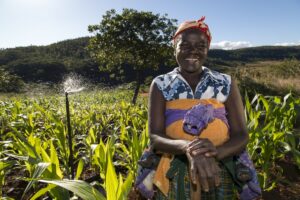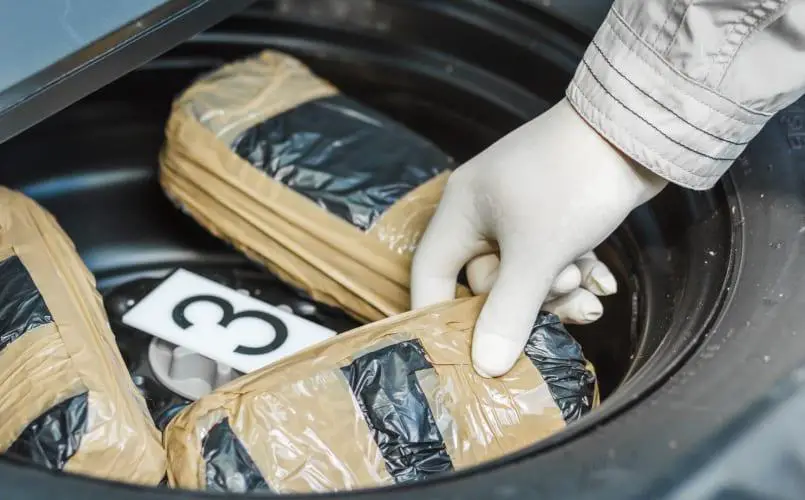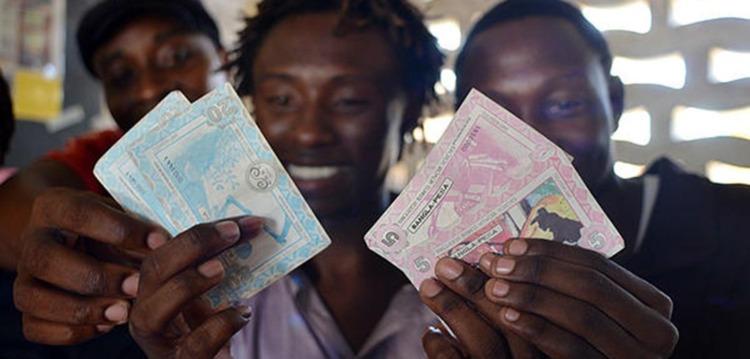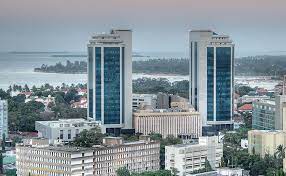- UAE support paves the way for Madagascar’s first gold refinery plant
- UAE is capable of shaping a new ‘inclusive, sustainable and global’ investment landscape
- Africa’s quest to unlock trillion-dollar food economy potential
- Partners back AIM Congress 2024 vision for global economic stewardship
- AIM Congress 2024: pre-event forums set the stage for strategic insights on global showcase
- Kenya, Tanzania braces for torrential floods as Cyclone Hidaya approaches
- EAC monetary affairs committee to discuss single currency progress in Juba talks
- Falling transport and food costs drive down Kenya’s inflation to 5 per cent in April
Author: Giza Mdoe
Giza Mdoe is an experienced journalist with 10 plus years. He's been a Creative Director on various brand awareness campaigns and a former Copy Editor for some of Tanzania's leading newspapers. He's a graduate with a BA in Journalism from the University of San Jose. Contact me at giza.m@mediapix.com
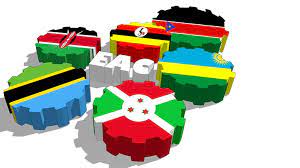
The East African Community (EAC) was formed to build socio-economic integration for East African countries. As a result, member states have entered into an agreement to, among other things, remove tariffs and trade barriers like levies and taxes to ease the movement of goods through their borders.
This sounds like a noble plan—an aspiration of partners—but let us look closer. From taxed Ugandan milk to railway lines and oil pipelines along with cargo routes, these six countries are vying for control for a better economic deal, and they are starting to look more like rivals than partners.
Uganda has recently conducted an ‘a trial run’ to transport its petroleum products via the Port of Dar es Salaam in Tanzania, a move that is seen as preparation towards the planned end to its customary use of the Port of Mombasa in Kenya.
Not to mention that Kenya has already invested over …
Four critical universities best practices for fostering graduate employability are of interest: Industry partnerships, Aligning university education with a country’s development plans, Regular university curriculum reviews, and Strengthening quality assurance systems.
However, while Universities work to better prepare graduates for the workforce, it is imperative for the government and the private sector to step in and increase the employability of graduates who are already in the workforce.…
Looking at the bigger picture, speculations are that the milk and milk product levies and taxes are designed to lure Uganda to choose favourably towards other trade issues that are pending.
As local Ugandan media puts it; “Uganda maintains that if there are issues that need to be addressed, they can be handled through bilateral arrangements or the regional trade agreements within the East African Community instead of using arbitrary means such as high taxes.”
Squeezing Uganda to act in its favour, Kenya has also imposed what Uganda is terming ‘a restriction to Ugandan diary products since January 2020.’ Notably, Kenya is Uganda’s largest milk trading partner in the region, yet for over an year now, Kenya has maintained restrictions on Ugandan milk products despite the East African Community (EAC) common market protocol.…
The next step in harmonizing policies and operating modules, is the need centralizing the related revenue administration and collection, because; “When we harmonize our tax administration we shall not compete with each other as EAC member states,” the sector experts reasoned.
There is also the matter of Visa fees which gravely affect the ability of traders to move between countries. It is now expected that the Republics of South Sudan, Uganda, and Kenya will expedite the removal of visa fees while the rest of the EAC partner states still need to remove what was described as ‘discriminatory fees, levies, and charges’ that hinder trade and persons movement across borders.…
The situation is no better across the border in Kenya, since both countries are geographically on the Indian Ocean they are major international air and water transit locations for traffickers from Asia and Latin America to Europe and the Arabian Peninsula.
As is the case for Tanzania, the report also cites corruption as a central reason behind traffickers choice of ports. As a result Kenya is also a transit country that is quickly becoming a destination for a various of drugs and especially heroin and cocaine as well as drugs that are used to produce methamphetamine.
“Heroin originating from Southwest Asia enters Kenya both from direct shipping across the Indian Ocean via south Asia and, increasingly, from countries to the south, such as Tanzania and Mozambique. Most of the heroin entering Kenya is destined for international markets, principally Europe. Cocaine enters Kenya primarily via transshipment through Ethiopia from South America,” …
While others are still trying to wrap their heads around blockchains and the safety of cryptos, Africa is embracing this digital currency with both hands. So much that in Kenya, you can even buy your groceries and I mean vegetables with cryptocurrencies.
That’s right, and this is not only in urban centres like the bustling capital of Nairobi, no, no, no, but it is also in the villages, upcountry. Peasants on the Coastal towns are trading in cryptos, buying and selling. Here we are not talking of mining cryptos only but rather using the digital currency for normal day to day trade, like Is said to buy supplies.
The way it works is, the cryptocurrency, a famous one in Kenya is coined Sarafu, which has now become an accepted medium of transfer such that one can use Sarafu to trade for goods and services.
Sarafu and others like it are …
Even though East Africa’s two economic giants Kenya and Tanzania are seen as business rivals, the two conduct enormous trade between each other and least of all not been the trade of the staple, corn.
According to the UN COMTRADE database on international trade, Kenya exports to Tanzania clocked USD 294.94 last year (2020). In fact, Tanzania has now bypassed Uganda to become Kenya’s largest export market in East Africa.
Reports show that the US imported goods from Kenya worth $41.8 million in June this year and guess which country comes next, Tanzania recording an amazing $31.6 million of Kenyan imports followed by Uganda at US$28.3 million.
Reciprocating the deal, Kenya is now accepting Tanzania’s maize into the country after a long period standoff where Kenya had banned the import of Tanzanian corn. Kenya placed a ban on Tanzanian maize for alleged contamination of Mycotoxins.
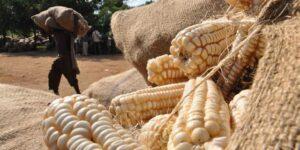
Mycotoxins are poisonous compounds produced …
On the bright side, even with the credit growth slowdown, it remained positive, growth still maintained and upward trajectory. This is also for both domestic credit extended to the private sector as well as the central government too.
Growth is expected to improve as the global economy normalizes over time but meanwhile, the government, through the central bank is instituting measures to increase liquidity and reduce lending rates, which in turn is expected to allow the private sector to have increased access to credit.
As part of these fiscal measures, the BoT has already issued TShs1 trillion to commercial lenders to help beef up their lending capacity and to do so at lower interest rates. This in turn is meant to encourage the private sector to borrow and increase production.…

Tanzania’s President Samia Suluhu Hassan has, since taking power in March this year, embarked on a path to rebuild corroded investor confidence in the country. The new president, the first female head of state in the country, has not been shy about admitting that the investment climate in Tanzania has been poor and is worsening by the day.
As such, she has publicly asked her government to do all it can to rebuild investor confidence and first and foremost, make the country’s tax regime affordable, fees and regulations acceptable and residency and work permits less bureaucratic.
Lucrative investment lies in major national development projects and since the country has a list of priority projects, President Samia ordered that this priority list be made public to ensure investors know the country’s interest and which areas to invest in.
“The requirements needed for a project to be regarded a priority will be …

Tanzania may have been bumped up to low-middle income status but its housing sector speaks a lot as to the people’s well-being. According to the Center for Affordable Housing in Africa (CAHF) the current housing deficit is more than three million housing units and majority of the urban population are not house-owners but renters, or to call a spade a spade, squatters.
There is an annual demand growth of 200,000 unit with a projected cost of US$12 billion. Yet despite this high demand for housing, supply remains very limited marred by limited financing options and when available, it is untouchable due to high interest rates.
The CAHF reports that the price for ‘the cheapest newly built house is around US$78,000 that covers about 288m for a single bedroom house. Yet, only 2.7% of urban households can afford the cheapest newly built house.
A New Lease for Tanzania’s Housing Sector
Recently, …


